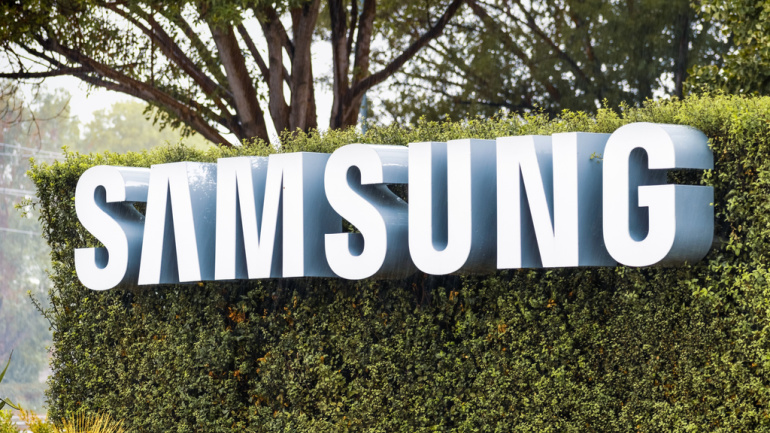Zimperium, a mobile security solutions provider for endpoints and apps, has unveiled its Mobile-First Security Platform™ to provide an end-to-end mobile security platform for businesses. The platform combines Zimperium Mobile Threat Defense (MTD) and Mobile Application Protection Suite (MAPS) to provide powerful new features for teams tasked with mobile security assurance. The Zimperium Mobile-First Security Platform integrates MTD and MAPS features, allowing for centralized administration and access to device and app security via a single interface on any cloud or on-premises platform. It also provides built-in privacy protection for all devices against various mobile threats including phishing, spyware, and rogue networks. Furthermore, it offers comprehensive in-app protection to avoid reverse engineering, safeguard cryptographic keys, and build self-defending apps. The platform’s expanded mobile environment includes enterprise connections such as SIEMS, IAM, XDR, DevOps workflows, ticketing systems, GitHub actions, and fraud systems. Also, advanced threat hunting is made possible by deep forensics…
Verizon Business has announced that it will provide a variety of network connectivity options to Siemens, a German global technology business, in order to maintain the security of its employees’ devices and data. The solutions will provide Siemens employees in smaller office locations with a smooth “plug and play” user experience while emphasizing security and zero trust principles. Siemens’ zero-trust initiative demands that all employee devices be verified, approved and continually checked before access to mission-critical applications and data is granted or retained. Verizon Business will implement an “internet only” connection, such as a global Managed Wide Area Network based on Cisco Meraki technology, which is vital to the success of the Siemens’ “never trust, always verify” program. According to Sanjiv Gossain, EMEA Vice President, Verizon Business, an intelligent network may make underlying architectures more agile by controlling traffic and improving operational efficiency. He noted that while every…
We may not always realize it, but we spend a good part of our lives online. We frequently reveal our names, addresses and credit card numbers when accessing shopping and social networking sites, and trust those sites to keep us and our information secure. You lock the door when you wish to keep your home safe. The same should apply on the Internet, where we can considerably limit our exposure to a variety of hazards by implementing a modest number of Internet safety measures. You know what they say – the Internet is like your front door: a lock doesn’t do much good if you leave the key under the welcome mat. Is it safe to be in the Internet? Learning about cybersecurity and online safety might feel like swimming through a sea of technical jargon. There are several cybersecurity terminologies to be familiar with, but we’ve selected a handful of…
More than 130,000 Telstra customers’ personal information has been made public online. According to the company, there was no cyberattack involved; rather, the issue was caused by a “misalignment of databases” as stated by Telstra. The incident is the most recent in a string of massive, unauthorized exposures of personal information in Australia. The telecom giant confessed that the information, which included the names, addresses and phone numbers of customers who had requested that their information be kept confidential, had been published on the White Pages and Directory Assistance Services websites. Telstra’s routine auditing procedures revealed the data leak. Following the finding, Telstra began contacting affected consumers and is providing free identity theft protection services. The corporation claims to have since deleted the consumer information from public view. “Protecting our customers’ privacy is absolutely paramount, and for the customers impacted we understand this is an unacceptable breach…
The Orange subsidiary, Orange Cyberdefense, has purchased all of the shares of SCRT and Telsys, two Swiss businesses. These two sister companies, which have operations in Geneva and Bern, together with a joint headquarters in Morges, near Lausanne, employ over 100 professionals with expertise in cybersecurity and related services. The growth of Orange Cyberdefense is a strategic goal for the Orange Group as it seeks to position itself as a top European cybersecurity business. The purchases, according to Orange, would strengthen the group’s cyberdefense business, which intends to generate 1 billion euros in revenue next year. The financial terms of this deal have not been disclosed. Currently, Orange Cyberdefense operates in nine countries, including France, Belgium, Denmark, Germany, the Netherlands, Norway, Sweden, the United Kingdom and Switzerland. With the acquisition of SCRT and Telsys, Orange Cyberdefense is now able to provide around-the-clock local assistance to Swiss organizations.…
According to an update from Optus, 2.1 million of the 9.8 million current and past customers whose data was exposed had at least one portion of an identification document, such as a license or passport number, accessed. In addition to personal data such as name, address, and date of birth, a current and legitimate form of identification was compromised for around 1.2 million people. For the remaining 900,000 users, the breach compromised an out-of-date ID. Optus stated that it has contacted all of the affected individuals and instructed them on the steps to take so as to minimize the damage done by this hack. Optus has also promised to reimburse victims the cost of passport replacement. The company has encouraged the remaining 7.7 million consumers to be cautious. Even though their identification documents were not stolen, the breach disclosed information such as email addresses, birth dates and phone…
TPx, a managed services company that offers cybersecurity, managed networks and cloud communications, has added Penetration Scanning to its Security Advisory Services offering. TPx Penetration Scanning makes use of an automated scanning platform, which allows for quick turnaround times and cost-effective services. This advanced product expands on TPx’s Vulnerability Scanning, which examines network-connected devices in order to discover possible security leaks. The combination of penetration and vulnerability scanning when used jointly offers a more thorough method of risk identification and security reinforcement. TPx Vulnerability and Penetration Scan simulates hacker behavior to assist clients evaluate the probability that a criminal will be able to successfully attack a company’s weaknesses in order to obtain access to systems or secret information on the network. Scanners track a company’s risk profile in almost real-time, with the analysis being conducted as a one-time activity or on a regular basis. Rick Mace, CEO…
In late July, Samsung Electronics experienced a cybersecurity incident that resulted in the exposure of personal data of some American customers. The business said it discovered the data breach on August 4. Samsung claims that the customers’ social security numbers and credit card numbers were unaffected, but information such as names, contact information, demographic information, date of birth, and product registration information was compromised. Samsung has already issued a warning to impacted consumers to be on the lookout for phishing emails that attempt to obtain additional personal data. These emails may be used for identity theft or to deceive recipients into installing malware on their computers. The business did not, however, address how many consumers were impacted or why it took Samsung more than a month to alert customers regarding this breach, which was reported only hours before a Labor Day weekend in the United States. …
Following a period of public debate, the UK government has decided on new security requirements for telecom providers. It now intends to introduce the Electronic Communications (Security) Measures Regulations 2022 and an accompanying Telecommunications Security Code of Practice to Parliament before the regulations take effect. The new rules seek to better secure UK telecoms networks from cyberattacks. Once in effect, telecoms businesses will be expected to follow tight standards around network failure or the theft of sensitive data, with the regulatory agency Ofcom receiving additional powers to verify providers are adopting suitable and proportional security measures. The government declared that the new telecommunications security legislation, designed in collaboration with the National Cyber Security Centre (NCSC), will be among the toughest in the world and will provide the UK with much stronger measures. They will strengthen the UK’s cyber resilience by incorporating strong security practices into providers’ long-term investment…
According to Google Cloud, it successfully stopped the greatest distributed denial-of-service (DDoS) assault ever, which reached a peak of 46 million requests per second (rps). One Google Cloud client who was utilizing the DDoS protection service Google Cloud Armor was the target of the assault on June 1. The attackers blasted consumers’ HTTP/S Load Balancer with HTTPS requests for 69 minutes, starting with 10,000 rps and quickly scaling up to 100,000 rps until peaking at a stunning 46 million rps. The assault was notable not just for its surprisingly enormous level of traffic, but also for other factors. 5,256 source IPs from 132 different countries participated in the assault. According to Google, it is the largest ever attack at Layer 7, which refers to the applications top layer in the Internet’s OSI model. The assault on Google’s client was nearly twice as large as a June HTTPS…













